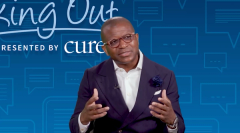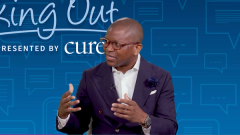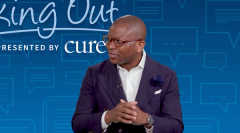
How to Manage Side Effects After Prostate Cancer Treatment
As part of its Speaking Out video series, CURE talked to Dr. Brian Keith McNeil, on behalf of ZERO Prostate Cancer, about managing side effects following prostate cancer treatment.
Episodes in this series
While treatment modalities for prostate cancer may cause a variety of side effects, there are ways to manage and improve these effects of treatment, such as urinary issues and erectile dysfunction to help improve quality of life.
According to Dr. Brian Keith McNeil, an open conversation with one’s healthcare team is the first step toward getting the help you need.
As part of its Speaking Out video series, on behalf of ZERO Prostate Cancer, CURE spoke with McNeil, vice chair of the Department of Urology at SUNY Downstate Health Sciences University, about managing side effects following prostate cancer treatment.
Urinary incontinence, or difficulty controlling the flow of urine, is a common problem after prostate cancer surgery. McNeil explains that this is because the muscles that control urine flow, called the sphincter, need time to recover. While this side effect almost always happens after surgery, he says it improves over time. He suggests that patients do Kegel exercises, which can help strengthen the pelvic muscles used to stop the flow of urine. This helps with what he calls "urinary rehab."
Erectile dysfunction is another common side effect, which can occur after surgery or radiation. McNeil reassures patients that “where there is a will, there is a way,” and a number of solutions are available. These include pills, injections, and even implants. He says it’s vital for patients to be open with their doctor about this. He understands it can be a difficult conversation because some men connect their manhood with their sexual performance. But he wants patients to know it's okay to feel vulnerable and ask for help.
Other side effects can include changes in bowel habits. McNeil recommends staying well-hydrated and increasing the amount of fiber in diet to help with these issues. He says fiber is key.
For men on hormone therapy, he notes that other side effects can include bone problems, mood changes and weight gain. Some men may also experience gynecomastia, or the growth of breast tissue. He advises patients to pay attention to these changes and discuss them with their doctor.
McNeil stresses the importance of having open communication with providers, adding that if they aren’t aware of a problem, they can’t help fix it. He recommends having a healthcare advocate, such as a family member or friend, attend appointments. He also suggests writing down questions before appointments and taking notes during the visit.








